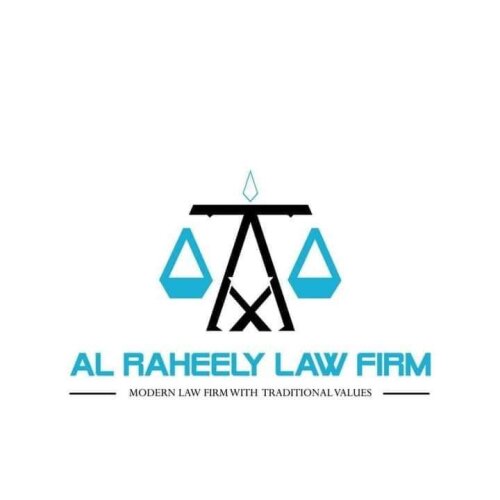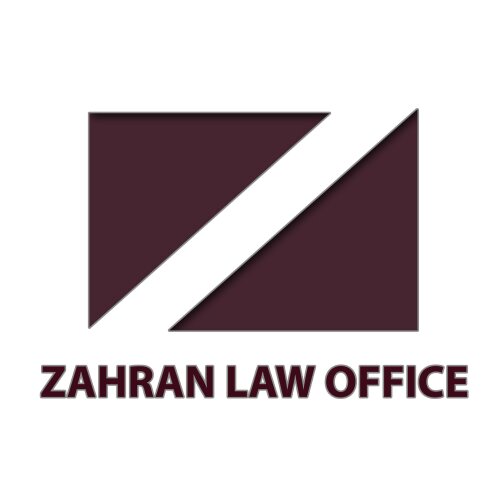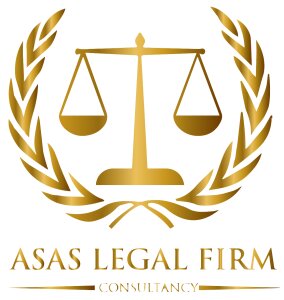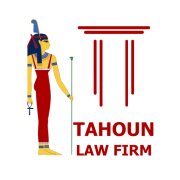Best Corporate & Commercial Lawyers in Cairo
Share your needs with us, get contacted by law firms.
Free. Takes 2 min.
List of the best lawyers in Cairo, Egypt
Egypt Corporate & Commercial Legal Questions answered by Lawyers
Browse our 1 legal question about Corporate & Commercial in Egypt and read the lawyer answers, or ask your own questions for free.
- عقود الامتيازات التجارية والخدمات
- تفاصيل اكثر للحصول والدعم للحصول على أمتياز تجاري
-
Lawyer answer by Alraheely Law Firm
Good Afternoon. Through our work and achievements in mergers and acquisitions, commercial franchises and other commercial contracts, we provide you with a range of services and comprehensive legal support regarding franchise agreements, including non-disclosure agreements and field support inside and...
Read full answer
About Corporate & Commercial Law in Cairo, Egypt
Corporate and commercial law in Cairo, Egypt, is a vital area of legal practice that governs the establishment, operation, regulation, and dissolution of businesses and commercial activities. As the country’s capital and economic hub, Cairo is home to a diverse range of businesses, including multinational corporations, small and medium-sized enterprises, and start-ups. The legal framework in Egypt strives to balance the interests of business growth with statutory control, making it essential for business owners and entrepreneurs to understand their legal obligations and rights.
Why You May Need a Lawyer
Navigating corporate and commercial law in Cairo can be complex due to frequent regulatory updates and the multifaceted nature of business operations. You may need a lawyer when:
- Forming a new company or expanding your business structure
- Negotiating or drafting contracts with suppliers, clients, or partners
- Managing acquisitions, mergers, or joint ventures
- Resolving shareholder disputes or corporate governance matters
- Ensuring regulatory compliance related to labor, tax, and intellectual property
- Handling disputes related to debt recovery or commercial litigation
- Understanding foreign investment regulations
- Liquidating or dissolving a business legally and efficiently
An experienced corporate and commercial lawyer can provide strategic advice, reduce uncertainties, and prevent costly mistakes in any of these scenarios.
Local Laws Overview
Egyptian corporate and commercial law is based primarily on the Companies Law No. 159 of 1981, the Commercial Law No. 17 of 1999, and various decrees and executive regulations. Here are some key aspects:
- Company Structures: The law allows various entity types, including joint stock companies, limited liability companies, sole proprietorships, and partnerships.
- Registration and Licensing: All businesses must register with the General Authority for Investment and Free Zones (GAFI) and obtain necessary licenses depending on sector and activity.
- Corporate Governance: The law prescribes governance structures, management duties, shareholder meetings, and reporting requirements to ensure transparency and accountability.
- Contract Law: Contracts are recognized and enforced under the Civil and Commercial Codes, emphasizing clarity in terms and mutual obligations.
- Foreign Investment: The Investment Law No. 72 of 2017 encourages foreign direct investment with incentives but requires compliance with specific procedures and approvals.
- Intellectual Property: Protection for trademarks, copyrights, and patents is provided under Egyptian law, vital for both local and international businesses.
- Labor Law: Employment relationships are regulated to protect employee rights and specify employer obligations under Labor Law No. 12 of 2003.
- Dispute Resolution: Courts, arbitration centers, and alternative dispute mechanisms are available for commercial conflicts.
Staying compliant requires regular legal updates and often professional guidance.
Frequently Asked Questions
What are the main types of business entities in Cairo, Egypt?
The most common types include joint stock companies, limited liability companies, partnerships, and sole proprietorships, each with specific regulatory, tax, and operational implications.
What is the process for company registration in Cairo?
Company registration involves selecting a legal entity type, preparing incorporation documents, registering with GAFI, obtaining a commercial registration certificate, a tax card, and completing sector-specific licensing as required.
Can foreigners own businesses in Cairo?
Yes, foreign investors can own businesses in Cairo, typically through joint stock or limited liability companies. There are incentives for foreign investment, though some sectors may have restrictions or special licensing requirements.
How are commercial contracts enforced in Egypt?
Commercial contracts are generally enforceable if properly drafted, signed, and compliant with local laws. Disputes may be resolved in Egyptian courts or through arbitration, depending on the contract terms.
What are the main employment regulations for businesses?
Employers must comply with the Labor Law, including employee rights, working hours, overtime, social insurance, termination procedures, and workplace safety standards.
Are there corporate tax obligations in Egypt?
Yes, businesses are subject to corporate income tax, value-added tax, and other fiscal obligations. Tax rates and reporting requirements may vary depending on sector and company size.
What is the role of the General Authority for Investment and Free Zones (GAFI)?
GAFI is the primary governmental body overseeing company registration, investment regulation, business licensing, and the administration of free zones in Egypt.
How are shareholder disputes resolved?
Shareholder disputes can be resolved through negotiation, mediation, litigation, or arbitration, depending on the company’s articles of association and Egyptian law.
What are the steps for business dissolution or liquidation?
The process involves notifying relevant authorities, settling debts, distributing remaining assets, and canceling registration. Legal and financial advice is advised to ensure compliance and closure.
How does one protect intellectual property in Egypt?
Intellectual property protection involves registering trademarks, patents, and copyrights with the competent authorities in Egypt, and enforcing rights through administrative or judicial proceedings if needed.
Additional Resources
Here are some helpful resources and organizations relevant to corporate and commercial law in Cairo, Egypt:
- General Authority for Investment and Free Zones (GAFI)
- Egyptian Financial Regulatory Authority (FRA)
- Cairo Regional Centre for International Commercial Arbitration (CRCICA)
- Ministry of Trade and Industry
- Egyptian Bar Association
- Industrial Development Authority (IDA)
- Chambers of Commerce, Cairo and Giza
- Egyptian Intellectual Property Office
Next Steps
If you need legal assistance in the field of corporate and commercial law, it is advisable to:
- Assess the nature of your legal issue or question to determine the level of expertise required
- Create a list of relevant documents and details about your company or business idea
- Contact a reputable corporate and commercial lawyer or law firm in Cairo experienced in your area of concern
- Schedule a consultation to discuss your situation and receive tailored legal advice
- Follow up with recommended actions, whether they involve drafting documents, representing you before authorities, or ongoing compliance support
Seeking timely legal guidance will help safeguard your business interests, ensure compliance with Egyptian laws, and support your commercial objectives.
Lawzana helps you find the best lawyers and law firms in Cairo through a curated and pre-screened list of qualified legal professionals. Our platform offers rankings and detailed profiles of attorneys and law firms, allowing you to compare based on practice areas, including Corporate & Commercial, experience, and client feedback.
Each profile includes a description of the firm's areas of practice, client reviews, team members and partners, year of establishment, spoken languages, office locations, contact information, social media presence, and any published articles or resources. Most firms on our platform speak English and are experienced in both local and international legal matters.
Get a quote from top-rated law firms in Cairo, Egypt — quickly, securely, and without unnecessary hassle.
Disclaimer:
The information provided on this page is for general informational purposes only and does not constitute legal advice. While we strive to ensure the accuracy and relevance of the content, legal information may change over time, and interpretations of the law can vary. You should always consult with a qualified legal professional for advice specific to your situation.
We disclaim all liability for actions taken or not taken based on the content of this page. If you believe any information is incorrect or outdated, please contact us, and we will review and update it where appropriate.
Browse corporate & commercial law firms by service in Cairo, Egypt
Cairo, Egypt Attorneys in related practice areas.

















